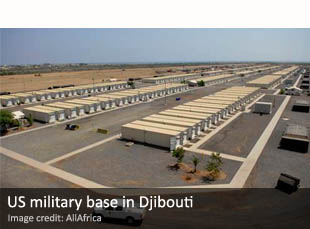News you may have missed #905
June 14, 2020 Leave a comment
 • French forces kill al-Qaeda head and capture ISIS leader in Mali. In the past few days, the French military successfully conducted two key operations in the Sahel, killing the emir of al-Qaeda in the Islamic Maghreb (AQMI), Abdelmalek Droukdal, and capturing Mohamed el Mrabat, a leader of the Islamic State in the Greater Sahara (EIGS) group. The US military assisted the French special operations forces by providing intelligence that helped locate the target.
• French forces kill al-Qaeda head and capture ISIS leader in Mali. In the past few days, the French military successfully conducted two key operations in the Sahel, killing the emir of al-Qaeda in the Islamic Maghreb (AQMI), Abdelmalek Droukdal, and capturing Mohamed el Mrabat, a leader of the Islamic State in the Greater Sahara (EIGS) group. The US military assisted the French special operations forces by providing intelligence that helped locate the target.
• Isis operations increase in Iraq as coalition withdraws. The Islamic State staged at least 566 attacks in Iraq in the first three months of the year and 1,669 during 2019, a 13 per cent increase from the previous year, according to security analysts who track the group’s activities. The jihadists have exploited a partial drawdown of the international anti-Isis coalition, analysts said, while tensions between the US and Iran, disruption caused by the coronavirus pandemic, and political paralysis in Baghdad, have also combined to provide an opportunity for the insurgents to regroup.
• Twitter removes more than 170,000 pro-China accounts. Twitter has removed more than 170,000 accounts it says were tied to an operation to spread pro-China messages. Some of those posts were about the coronavirus outbreak, the social media platform has announced. The firm said the Chinese network, which was based in the People’s Republic of China, had links to an earlier state-backed operation it broke up alongside Facebook and YouTube last year.
 French troops have reportedly killed a Spanish citizen who was a senior commander of al-Qaeda in the Islamic Maghreb (AQIM), one of the most prolific al-Qaeda-linked groups in Africa. The Spaniard, Abu al-Nur al-Andalusi, 35, was from Melilla, a coastal Spanish enclave in northern Africa, which borders Morocco. Since 2014, al-Nur had operated as a military leader of AQIM, an armed Islamist group that aims to create a caliphate in northern Africa. AQIM emerged in the 1990s out of the brutal Algerian Civil War, which pitted the country’s secular but authoritarian government against a host of Islamist groups, including the Armed Islamic Group, known as GIA. In 1998 a band of GIA members left the group in protest against its indiscriminate killing of civilians, and formed a separate organization, which called itself Salafist Group for Preaching and Combat. In2007 the group renamed itself AQIM and pledged allegiance to al-Qaeda’s co-founder Osama bin Laden.
French troops have reportedly killed a Spanish citizen who was a senior commander of al-Qaeda in the Islamic Maghreb (AQIM), one of the most prolific al-Qaeda-linked groups in Africa. The Spaniard, Abu al-Nur al-Andalusi, 35, was from Melilla, a coastal Spanish enclave in northern Africa, which borders Morocco. Since 2014, al-Nur had operated as a military leader of AQIM, an armed Islamist group that aims to create a caliphate in northern Africa. AQIM emerged in the 1990s out of the brutal Algerian Civil War, which pitted the country’s secular but authoritarian government against a host of Islamist groups, including the Armed Islamic Group, known as GIA. In 1998 a band of GIA members left the group in protest against its indiscriminate killing of civilians, and formed a separate organization, which called itself Salafist Group for Preaching and Combat. In2007 the group renamed itself AQIM and pledged allegiance to al-Qaeda’s co-founder Osama bin Laden.



 By IAN ALLEN | intelNews.org |
By IAN ALLEN | intelNews.org |








